Overview of Femara
Femara, whose generic name is letrozole, is an oral, non-steroidal aromatase inhibitor used primarily in the treatment of hormonally-responsive breast cancer after surgery. The medication functions by decreasing the amount of estrogen produced by the body, which can slow or reverse the growth of certain types of breast tumors that require estrogen to grow.
Indications and Usage
Femara is indicated for the adjuvant treatment of postmenopausal women with hormone receptor-positive early breast cancer, as extended adjuvant treatment of early breast cancer in women who have received prior standard adjuvant tamoxifen therapy, and for the first-line treatment of postmenopausal women with hormone receptor-positive or unknown locally advanced or metastatic breast cancer. It is also utilized in the treatment of advanced breast cancer in postmenopausal women with disease progression following antiestrogen therapy.
Dosage Forms and Strengths
Femara is available in a 2.5 mg tablet form. The tablets are film-coated and round with “FV” on one side and “CG” on the other side.
Pharmacological Properties
Letrozole has a high specificity in inhibiting aromatase, with a negligible effect on other steroid hormones. It does not possess progestogenic, androgenic, or estrogenic activity.
Dosage and Administration
The recommended dose of Femara is one 2.5 mg tablet administered once daily, without regard to meals. In patients with advanced or metastatic breast cancer, treatment with Femara should continue until tumor progression is evident.
Administration Considerations
Tablets should be swallowed whole with water or another liquid. Do not crush or chew the tablets. In case of a missed dose, patients should take it as soon as they remember, unless it is almost time for their next dose; in that case, they should skip the missed dose.
Drug Interactions
Femara should not be administered concomitantly with tamoxifen or with estrogen-containing therapies. Potent CYP3A4 inducers can decrease the plasma concentrations of letrozole, whereas CYP3A4 inhibitors can increase its plasma concentrations.
Use in Specific Populations
Femara is contraindicated in premenopausal women, women who are pregnant, or may become pregnant because of the potential for fetal harm. Caution should be exercised when administering the drug to patients with severe hepatic impairment, as exposure to letrozole may be increased in such conditions.
Pharmacokinetics
Femara is rapidly and completely absorbed from the gastrointestinal tract and metabolized extensively in the liver. Its plasma elimination half-life is approximately 2 days. Metabolites are excreted mainly in the urine.
Storage and Handling
Femara tablets should be stored at room temperature, between 20°C to 25°C (68°F to 77°F). Protect from heat and moisture. Keep the bottle tightly closed and out of reach of children.
Patient Counseling Information
Healthcare providers should instruct their patients to read the patient labeling, ensure they understand the risks of potential fetal harm if taken during pregnancy, advise them of potential side effects, and inform them of the importance of adherence to therapy and follow-up appointments. Patients should be made aware of possible serious side effects such as osteoporosis or bone fractures.
Adverse Reactions
Common adverse reactions of Femara include hot flushes, arthralgia, night sweats, weight gain, nausea, fatigue, headache, and edema. More serious adverse reactions can include osteoporosis, cardiovascular events, and hypercholesterolemia.
Drug Abuse and Dependence
There is no indication that Femara has potential for abuse, dependence, or withdrawal phenomena. It is not a controlled substance under federal regulations.
Overdosage Management
In the event of an overdose, symptomatic treatment should be initiated. There is no specific antidote to letrozole. Dialysis may not be helpful because letrozole is highly protein-bound.
Nonclinical Toxicology
In animal studies, letrozole has shown to cause fetotoxicity, teratogenicity, and embryotoxicity. These findings support the contraindication of Femara in women who are pregnant or may become pregnant.
Clinical Studies
In clinical trials, Femara has shown superiority to tamoxifen in the time to disease progression and rate of response in the treatment of metastatic breast cancer. In the adjuvant setting, Femara has been demonstrated to improve disease-free survival compared to placebo.
Regulatory Status
Femara is approved by the U.S. Food and Drug Administration (FDA) for the treatment of specific types of breast cancer in postmenopausal women. Its use is directed towards patients who have estrogen receptor-positive tumors or who have completed prior tamoxifen therapy.

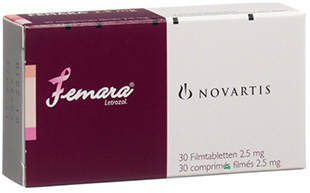
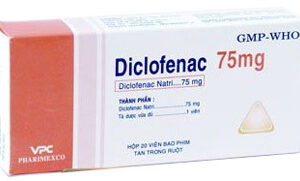
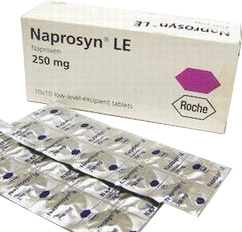
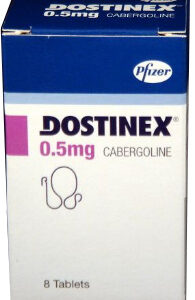
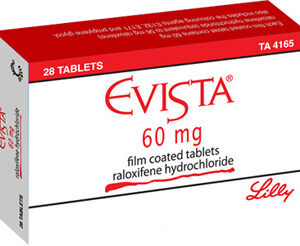
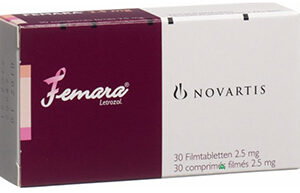
Reviews
There are no reviews yet.